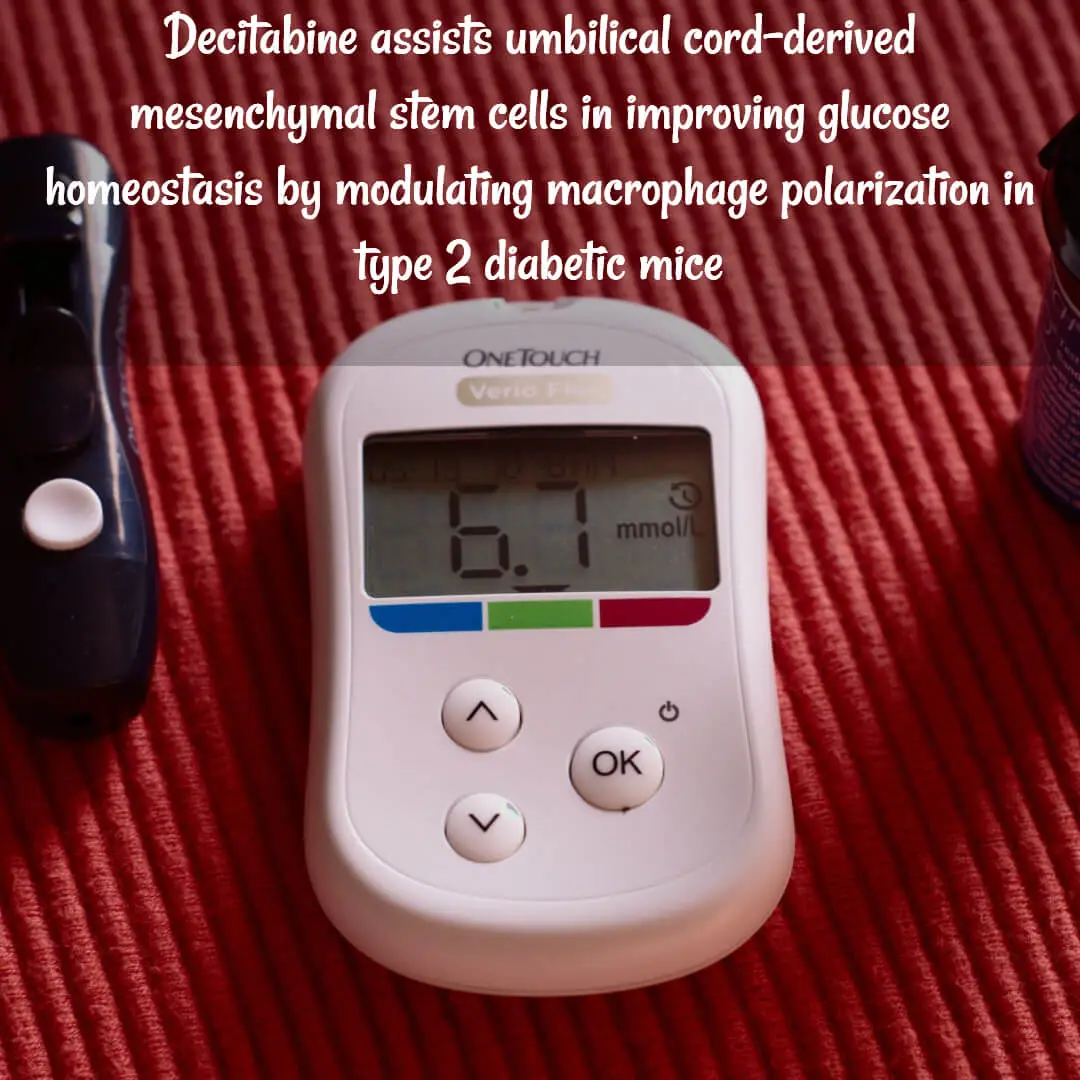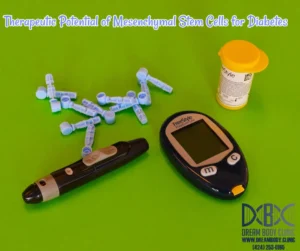Decitabine assists umbilical cord-derived mesenchymal stem cells in improving glucose homeostasis by modulating macrophage polarization in type 2 diabetic mice
Abstract
Background: Mesenchymal stem cells (MSCs) have emerged as a promising therapy for type 2 diabetes (T2D).
Mechanistic researches demonstrate that the anti-diabetic effect of MSCs is partially mediated by eliciting
macrophages into an anti-inflammatory phenotype thus alleviating insulin resistance. However, single MSC infusion
is insufficient to ameliorate sustained hyperglycemia or normalize blood glucose levels. In this study, we used
decitabine (DAC), which is involved in the regulation of macrophage polarization, to test whether MSCs combined
with decitabine can prolong and enhance the anti-diabetic effect in T2D mice.
Methods: High-fat diet (HFD) and streptozocin (STZ) were given to induce T2D mouse model. Successfully induced
T2D mice were randomly divided into four groups: T2D group, MSC group, DAC group, and MSC + DAC group.
Blood glucose was monitored, and glucose tolerance and insulin sensitivity were evaluated during the entire
analysis period. Epididymal fat was extracted for analysis of macrophage phenotype and inflammation in adipose
tissue. In vitro, we examined the effect of MSC + DAC on macrophage polarization in bone marrow-derived
macrophages (BMDMs) and explore the possible mechanism.
Results: MSC infusion effectively improved insulin sensitivity and glucose homeostasis in T2D mice within 1 week,
whereas combination therapy of MSCs + DAC extended the anti-diabetic effects of MSCs from 1 to 4 weeks (the
end of the observation). Correspondingly, more M2 macrophages in adipose tissue were observed in the
combination therapy group over the entire study period. In vitro, compared with the MSC group, MSCs combined
with decitabine more effectively polarized M1 macrophages to M2 macrophages. Further analysis showed that the
effect of MSC + DAC on macrophage polarization was largely abrogated by the peroxisome proliferator-activated
receptor gamma (PPARγ) antagonist GW9662.
Conclusions: Our data suggest that MSCs combined with decitabine can more effectively alleviate insulin
resistance and prolong and enhance the anti-diabetic effect of MSCs in T2D mice in part by prompting M2
polarization in a PPARγ-dependent manner. Thus, decitabine may be an applicable addition to MSCs for diabetes
therapy.
Read the full study about how Decitabine assists umbilical cord-derived mesenchymal stem cells Here:
Decitabine-assists-umbilical-cord-derived-mesenchymal-stem-cells-in-improving-glucose-homeostasis-by-modulating-macrophage-polarization-in-type-2-diabetic-mice


